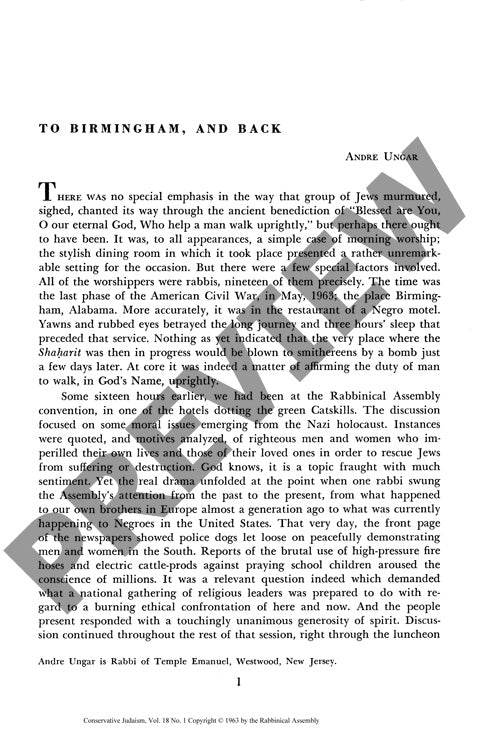To Birmingham and Back
Couldn't load pickup availability
In May 1963, nineteen Conservative rabbis left their comfortable Rabbinical Assembly convention in the Catskills to join Dr. Martin Luther King Jr.'s dangerous desegregation campaign in Birmingham, Alabama - marking the first time a major religious denomination moved beyond mere resolutions to put bodies on the line for civil rights. Through first-person narrative accounts and participant observation, this research reveals intense conflicts between these national Jewish religious leaders and local Southern Jewish communities, who feared violent reprisals and desperately urged the visiting rabbis to withdraw. The rabbis' decision to remain transformed both the movement and their understanding of religious leadership, as they participated in mass rallies, navigated complex interactions with the African American freedom movement and federal authorities, and helped negotiate the eventual desegregation agreement. Their presence provided critical moral legitimacy to the broader civil rights struggle while forcing Jewish communities nationwide to confront their own positions on racial justice. Analysis of personal testimony and historical records demonstrates how direct clerical involvement in social justice movements created lasting impacts that rippled far beyond Birmingham, fundamentally reshaping conceptions of religious leaders' roles in confronting moral crises. This research documents a pivotal case study in how faith leaders' physical presence and personal risk-taking advanced civil rights far more powerfully than traditional statements of support.

More Information
-
Physical Description
-
Publication Information
Published 1963
ISBN
-
Publication Credits
Andre Ungar

